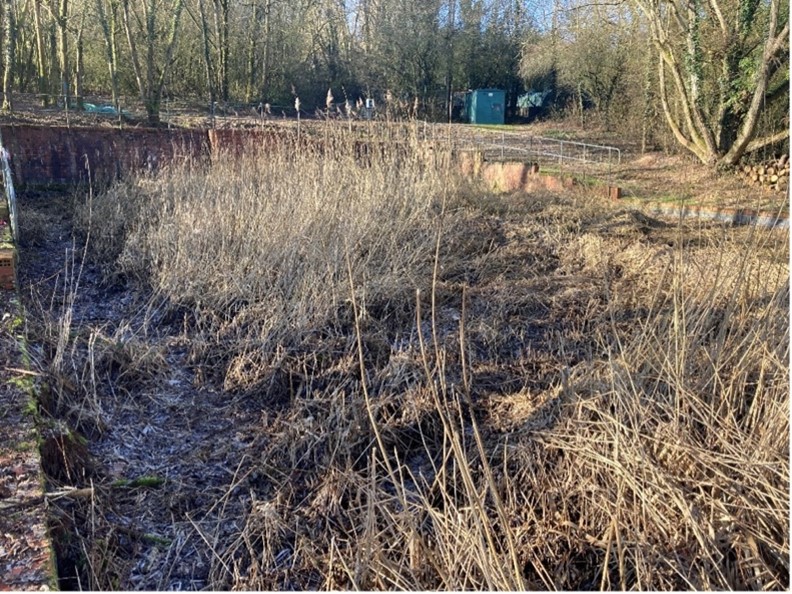In December 2023, the government announced it was lifting the cap on the £250,000 fine limit for environmental polluters and expanding the list of offences businesses can be fined for. This applies to any organisation that holds an environmental permit.
Following this announcement, owners of reed beds used in the wastewater treatment process may face considerable fines if they don’t maintain them. Neglected reed beds can pose an environmental threat when they can no longer treat wastewater sufficiently. Additionally, consented discharge permits will state a reed bed must be installed and maintained.
The relationship between reed beds and pollution
Reed beds can be used in the final stages of sewage, trade effluent, or mine water treatment by ‘polishing’ partially treated water before it’s eventually discharged into the environment. A reed bed’s ability to do this will be hindered if it’s not regularly looked after.
Alastair Pentland, Environmental Operations Manager at Oren Environmental, said: “After around ten years, the operational effectiveness of a reed bed can plummet to less than 20% if it hasn’t been regularly maintained.
“Additionally, nitrates, ammonium, and phosphates that enter the reed bed from the sewage treatment process, for example, can become harmful at increased levels by causing water pollution or disrupting aquatic ecosystems. In comparison, a healthy reed bed will absorb up to 90% of these chemicals before they’re released into waterways.
“If an organisation fails to maintain their reed bed effectively, they may be fined for causing pollution, and additionally, they’d have to pay for the reed bed to be refurbished. On top of that, they could suffer reputational damage.
“However, all these potential issues can be avoided when reed beds are regularly maintained.”

What reed bed maintenance involves
Like any wastewater asset, a reed bed needs regular care to maintain operational effectiveness above 80%.
Maintenance can involve things like sampling the water within the reed bed to check its quality, monitoring the flow of what’s coming into the reed bed and how long the wastewater is being retained, tending to the reeds and plants to stimulate further growth, assessing the pipework for blockages, and cutting back the surrounding weeds, overhanging trees, and green waste that threatens to choke the reed bed preventing healthy growth.
Alastair added: “Continuous monitoring of water quality parameters and microbial populations is essential to gain insights into the health and effectiveness of reed beds.
“Routine maintenance helps maintain a reed bed’s ability to mitigate environmental pollutants, ensuring a sustainable and efficient wastewater treatment process.”
Your reed bed might be your final opportunity to prevent pollution
With financial penalties even higher for organisations who pollute watercourses, now might be the right time to protect the planet, your pocket, and your reputation by organising a reed bed survey.
Alastair concluded: “When reed beds operate at their best, their ability to treat water increases. By keeping the reed bed system in prime operational condition through regular maintenance, increased water quality will be achieved, and hefty fines can be avoided.”
About Oren Environmental
Oren Environmental is an industry leader in reed bed maintenance and large-scale desludging.
Our expertise comes from refurbishing and maintaining one of the world’s largest portfolios of reed beds and settlement lagoons.
For more information about Oren Environmental, please visit our website.








